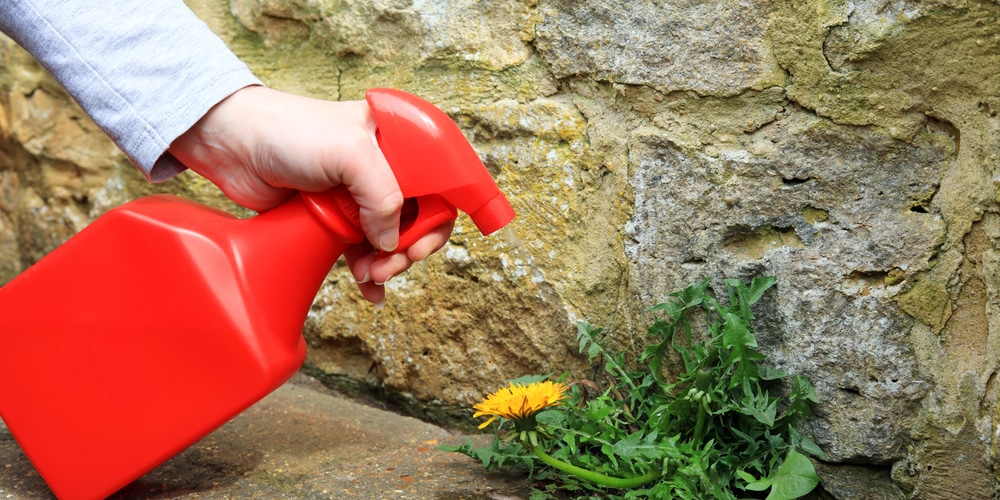There are different types of ammonia; some will kill weeds and grass while others are fertilizers that are beneficial to your lawn. In this article, we’ll discuss the differences between the common types of ammonia and yes, ammonia will kill grass.
Ammonia comes in different varieties and is an ingredient in many different products. You may have heard that ammonia can be used to kill weeds and that it can also feed your lawn. If this statement seems to contradict itself, you may be forgiven for the confusion.
Will Ammonia Kill Grass?
The right type of ammonia is beneficial to your lawn as it will provide nitrogen to feed your grass and help it thrive. However, there are various types of ammonia, and it could also kill your grass. It’s pretty easy to kill grass with ammonia if you aren’t careful. Here are the main types of ammoniums and their uses:
Ammonium Nitrate
One of the most common types of ammonia is ammonium nitrate. This is an excellent source of nitrogen for your lawn and is an ingredient of many commercial fertilizers. Ammonium nitrate is used in weed and feed fertilizers that are designed to be used throughout the fall and winter.
Products that contain ammonium nitrate are best used on lawns that are well established. These products will release nitrogen quite quickly, which isn’t good for grass that’s been damaged, newly laid sod, or young grass seedlings.
Household Ammonia
Household ammonia is also known as Ammonium hydroxide. This compound is found in many household cleaners, such as soap or dish soap. Some people recommend using Ammonium hydroxide to create a home weed killer. While household ammonia is a powerful solution and can help eliminate weeds, you’ll also have to be careful what it comes into contact with. You don’t want to be spraying Ammonium hydroxide all over your lawn, as you’ll end up killing your lawn as well as the weeds.
It’s best to use an Ammonium hydroxide solution to get rid of weeds that are growing in between stones on a patio. You can spray a soap and water mix on the weeds without having to worry about it damaging nearby grass. Using this method to kill weeds on your lawn will result in a patchy lawn that needs to be overseeded.
It’s also worth noting that each household product varies in the amount of Ammonium hydroxide concentration. You could easily end up burning your lawn. It’s, therefore, best to dig weeds up or use a commercial herbicide rather than attempting to make your own spray with soap.
Ammonium Sulfate
Ammonium sulfate is a chemical that can be used when gardening. It’s not usually added to commercial lawn fertilizers due to its acidity. This product will change the soil pH and make it more acidic. This is beneficial for plants that like acidic soils but isn’t good for your grass.
Over-application of Ammonium sulfate to your plants or if used on grass may cause chemical burns, especially if you apply these types of products on a sunny day. If you do decide to use a product that contains Ammonium sulfate, be very careful.
Ammonium Phosphate Sulfate
Ammonium phosphate sulfate is often used as a fertilizer for young grass seedlings. It’s beneficial as it’s much gentler than ammonium nitrate and also contains phosphate. This type of ammonia is used to treat the soil before grass seeds are planted or new sod is laid. Ammonium phosphate sulfate is less likely to kill your grass or cause damage to your lawn than another common type of ammonia.
Conclusion: It depends on the Type of Ammonia
As you can see, there are many different types of ammonia. Ammonium nitrate will provide your grass with nitrate and improve its health. Ammonium phosphate sulfate is excellent for young grass seedlings and contains not only nitrogen but also sulfate. Ammonia is an effective weed killer.
The other types of ammonia are lily to damage, burn or even kill your grass. If you decide to use a product that contains ammonia, make sure you get the right one. Only use products on your lawn in the intended way; otherwise, your grass will suffer.
